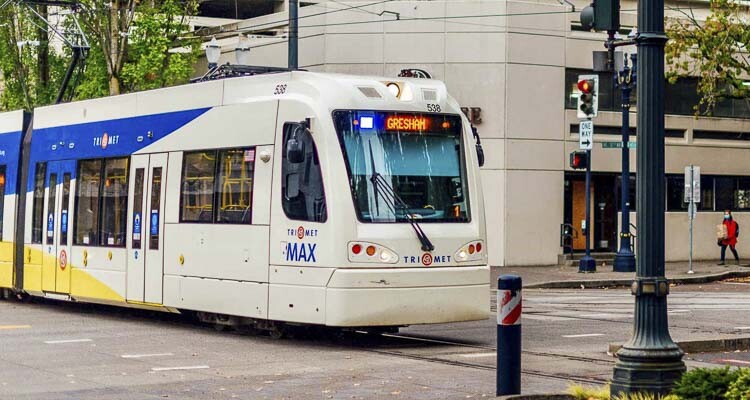
Researchers collaborated with five transit agencies, including TriMet in the Portland metro area
Spencer Pauley
The Center Square Washington
The University of Washington has released a new report that found numerous transit vehicles in the Seattle and Portland areas contained “small amounts” of fentanyl and methamphetamine.
Researchers detected the drugs in the air and on surfaces, according to the the University of Washington School of Public Health’s exposure assessment
Out of 78 air samples collected by UW researchers, 25% had detectable fentanyl and 100% had detectable methamphetamine. Out of 102 surface samples, 46% had detectable fentanyl and 98% had detectable methamphetamine.
However, nearly all of the positive samples contained small amounts of the drugs that are unlikely to cause acute medical conditions, according to the assessment.
It remains unclear to researchers if consistent, long-term exposure poses a risk to health. Transit operators who work full time, 40 hours a week, would be considered under long-term exposure to the trace amounts of fentanyl and methamphetamine.
“A work environment that includes drug use and drug smoke can make it harder for transit operators to safely and effectively do their jobs, regardless of the level of exposure that operators may face,” UW Assistant Professor of Environmental and Occupational Health Sciences Marissa Baker said in a news release. “This research is important, as it draws attention to the stressors and exposures that these essential workers face.”
Researchers collected air and surface samples for fentanyl and methamphetamine from a total of 11 buses and 19 train cars from five transit agencies. Samples were collected over 28 nights between March 27 and June 22.
The assessment was limited in scope and narrowly tailored. Researchers collaborated with five transit agencies, which also provided funding: King County Metro, Sound Transit, Everett Transit and Community Transit in Snohomish County, and Tri-Met in the Portland metro area.
The assessment suggests protective measures including improved ventilation and air filtration, enhanced cleaning practices and operator training on agency protocols around the use of drugs on vehicles.
“Even at a level that is considered ‘safe,’ it can still be stressful to see drug use in your workplace,” Baker added. “Taking steps to protect operators will benefit their physical and mental well-being at work.”
Sound Transit Chief Executive Officer Julie Timm said the agency is relieved to hear from public health officials that the study results indicate there is no public health risk on transit. She added that Sound Transit will continue to enact measures “to continuously, proactively, and equitably improve our safety and environmental conditions.”
This report was first published by The Center Square Washington.
Also read:
- Opinion: OIC tells consumers not to pay for ‘insurance’ you won’t likely benefit from: Does that include WA Cares?Elizabeth New (Hovde) of the Washington Policy Center believes you should consider yourself warned by the Office of the Insurance Commissioner about WA Cares and its maybe-only benefit.
- Opinion: Same road, different speed limit?Target Zero Manager Doug Dahl addresses a question about speed limit signs going into and leaving town.
- Progress being made at GRO Parade of Homes siteThe 2024 GRO Parade of Homes, presented by the Building Industry Association of Clark County, is a little more than a month away, and builders are busy completing the luxury homes before the big event, scheduled for Sept. 6 through 22 in Felida.
- Has trust in the media tanked over coverage of President Biden’s decline?After President Joe Biden’s calamitous debate performance against former President Donald Trump, and days after Biden’s decision Sunday not to seek reelection, there are still many questions about how the news media covered Biden’s mental and physical decline.
- Opinion: Hiding the growing cost of the Interstate Bridge replacementJoe Cortright of the City Observatory addresses the rising cost of the Interstate 5 Bridge replacement project.
- Letter: ‘This election I am NOT voting for Greg Cheney’Clark County resident Wynn Grcich shares her thoughts on Rep. Greg Cheney and the issue of fluoridation in area drinking water.
- Major gas line leak closes major arterial in Clark CountyFirefighters from Clark County Fire District 6 responded Thursday (July 25) afternoon to the scene of a major natural gas leak on NE 99th Street, directly in front of Columbia River High School.











